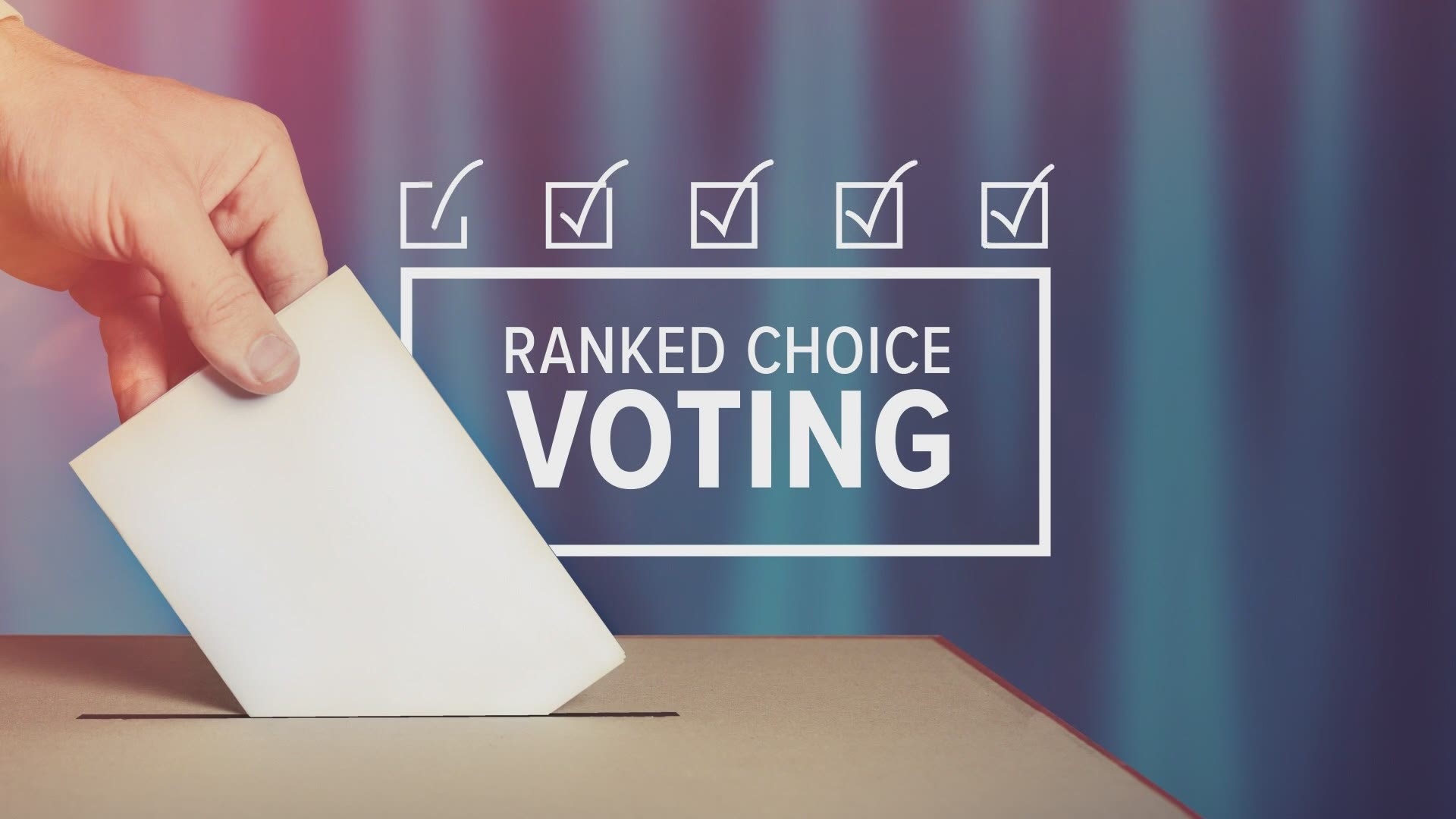PORTLAND, Maine — The Maine Supreme Court ruled in favor of Maine Secretary of State Matthew Dunlap in his appeal, clearing the way for ranked-choice voting (RCV) in the upcoming presidential election. With the court’s decision, Maine will now become the first state in U.S. history to use the ranked-choice format in a presidential election.
Maine's highest court concluded that the Maine Republican Party (GOP) failed to reach the required threshold needed for a "People's Veto" referendum aimed at rejecting state law that expands RCV to the presidential election.
In a statement to NEWS CENTER Maine, Dunlap said the decision, "confirms our position that Maine law requires those who circulate petitions to be registered Maine voters before engaging in petition circulation."
"As we have already printed the ballots, due to the federal deadlines we must meet to provide ballots for overseas and military voters, this decision comes as a great relief and avoids the complications, confusion and expense that would have arisen from reprinting and reissuing ballots," Dunlap said.
A Republican group launched a petition drive earlier this year trying to block ranked-choice altogether, but Dunlap said it didn't have enough valid signatures to get on the ballot.
Nearly 1,000 signatures were originally excluded by the Secretary of State because they failed to be collected by a registered voter as required by the Maine Constitution.
"The certification process is a painstaking, yet expedited process to ensure that any initiative or people’s veto that comes forward as a ballot question before the voters of Maine appears there with the legitimacy afforded by having met all requirements of the Maine Constitution," Dunlap said Tuesday. "Our work in the certification of any initiated effort of the people is entirely to achieve that assurance regardless of the political discourse around the matter at hand."
The group went to court and a judge ruled that they did have enough valid signatures to put the people's veto question on the November ballot, blocking the use of RCV in the presidential race. Dunlap appealed that ruling and earlier this month Maine's supreme court heard 11th-hour arguments aimed at stopping the GOP-led referendum on RCV.
Following the oral arguments, the court placed an automatic stay on the effectiveness of the Superior Court decision, allowing the Secretary of State’s Office to begin printing ballots with RCV in place for the presidential race despite a ruling on the case’s merits not yet being made.
The court decided on the merits of the case on Tuesday, concluding that the superior court erred in their decision that the petitioners had satisfied the burden of overcoming the presumption of constitutionality.
“We therefore vacate the judgment of the Superior Court in which it vacated the Secretary of State’s decision as to the 988 signatures that it determined were valid,” the court said in its ruling. “Because our decision results in a deficit in the number of signatures required for the people’s veto to be placed on the ballot, we do not reach or consider the Committee’s arguments regarding other signatures that it contends were improperly validated.”
Read the ruling here:
"We are disappointed in the decision and exploring further options for review by the federal courts to protect Maine voters' rights to be heard," Maine GOP Chair Dr. Demi Kouzounas said in a statement.
With RCV, voters rank candidates in order of preference, and no winner is declared until one candidate receives at least 50 percent of the vote. If no candidate reaches 50 percent, the candidate with the fewest votes is eliminated and their voters are reallocated based on their second-choice candidate.
A citizen's initiative proposing RCV as law got enough signatures to get on the 2016 General Election ballot; voters approved the question and it became law. RCV in Maine elections took effect in the June 2018 primary election, marking the first time RCV was used in a Congressional race in the U.S. Find out more about the history of RCV in Maine.
"Maine voters can now be assured that the race for U.S. President on the November ballot will be conducted using ranked-choice voting, and the people’s veto question regarding the use of that voting method for president will NOT appear on this ballot," Dunlap said.
Dunlap's full statement:
"Today’s decision from the Maine Supreme Judicial Court in the appeal of the David A. Jones Vs. Secretary of State decision of August 24, confirms our position that Maine law requires those who circulate petitions to be registered Maine voters before engaging in petition circulation.
The certification process is a painstaking, yet expedited process to ensure that any initiative or people’s veto that comes forward as a ballot question before the voters of Maine appears there with the legitimacy afforded by having met all requirements of the Maine Constitution. Our work in the certification of any initiated effort of the people is entirely to achieve that assurance regardless of the political discourse around the matter at hand.
The decision thereby upholds our office’s determination that the people’s veto effort to repeal the use of ranked-choice voting in the presidential election did not gather enough valid signatures to qualify for the ballot.
Thus, Maine voters can now be assured that the race for U.S. President on the November ballot will be conducted using ranked-choice voting, and the people’s veto question regarding the use of that voting method for president will NOT appear on this ballot.
As we have already printed the ballots, due to the federal deadlines we must meet to provide ballots for overseas and military voters, this decision comes as a great relief and avoids the complications, confusion and expense that would have arisen from reprinting and reissuing ballots.
We would like to thank Justices Mead, Gorman, Jabar, Humphrey and Horton for their thoughtful review of Maine law in determining the outcome of this appeal."

